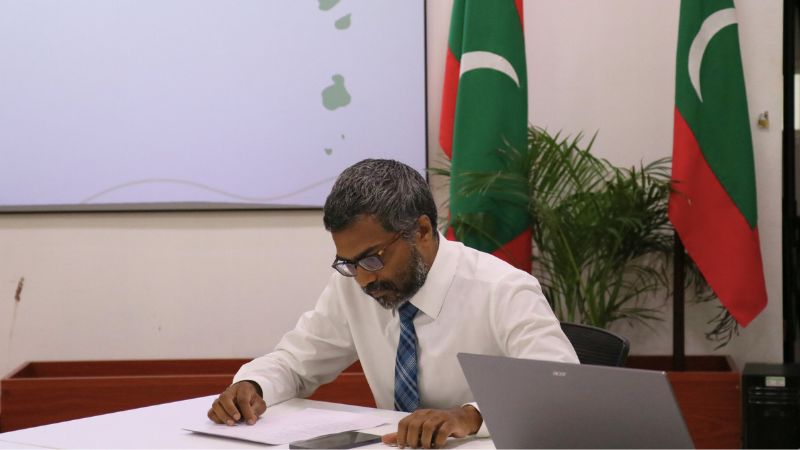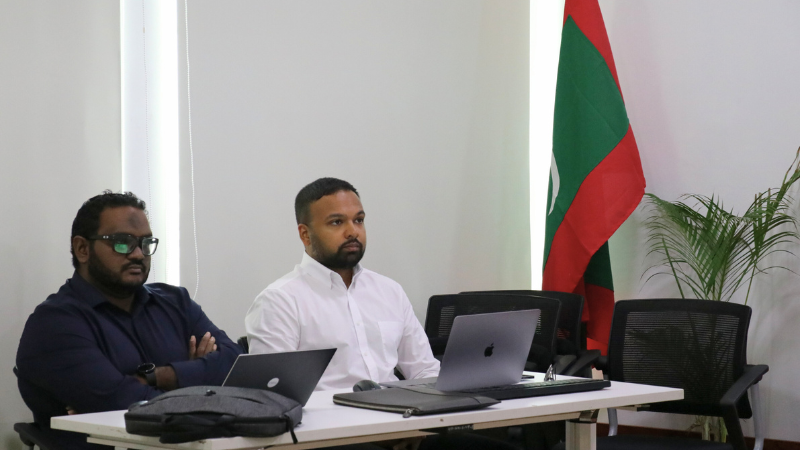A stakeholder consultation workshop was held to review the draft regulation on institutionalizing the data collection process for Greenhouse Gas (GHG) inventories. This workshop was organized as part of the consultancy to strengthen institutional arrangements for climate change reporting under the “Capacity Building for Improved Transparency of Climate Change Mitigation and Adaptation Actions in the Maldives” (CBIT Maldives) project.

The workshop was attended by representatives from various organizations, including the Energy Department of the Ministry, Utility Regulatory Authority, Ministry of Transport and Civil Aviation, Maldives Bureau of Statistics (MBS), Maldives Customs Services, STELCO, MTCC, MIFCO, Maldives Gas, and Manta Air. The team responsible for developing the Maldives’ first Biennial Transparency Report (BTR) also participated in the workshop.
The workshop began with opening remarks from Mr. Ahmed Waheed, Director of the Climate Change Department. Institutional Arrangement Expert Mr. Hamdhoon Mohamed followed with a presentation on the importance of GHG inventories and the Monitoring, Reporting, and Verification (MRV) of mitigation actions. National Legal Expert Mr. Mohamed Aseel Hassan presented the draft regulation, which aims to formalize data collection for GHG inventories to meet the reporting requirements of the United Nations Framework Convention on Climate Change (UNFCCC).


By aligning the Maldives’ transparency efforts with the Enhanced Transparency Framework (ETF) of the Paris Agreement, the CBIT Maldives project seeks to strengthen long-term institutional arrangements, systematize data collection and processing, and develop indicators and methodologies. Additionally, the project aims to improve overall data quality and management procedures for GHG inventories, mitigation and adaptation actions tracking, and climate finance, ensuring regular and transparent reporting to the UNFCCC process. These efforts will inform national decision-making processes and contribute to the effective management of climate change challenges.
The CBIT Maldives project is funded by the Global Environment Facility (GEF) and executed by the Ministry of Climate Change, Environment, and Energy, with implementation support from the United Nations Environment Programme (UN Environment).


